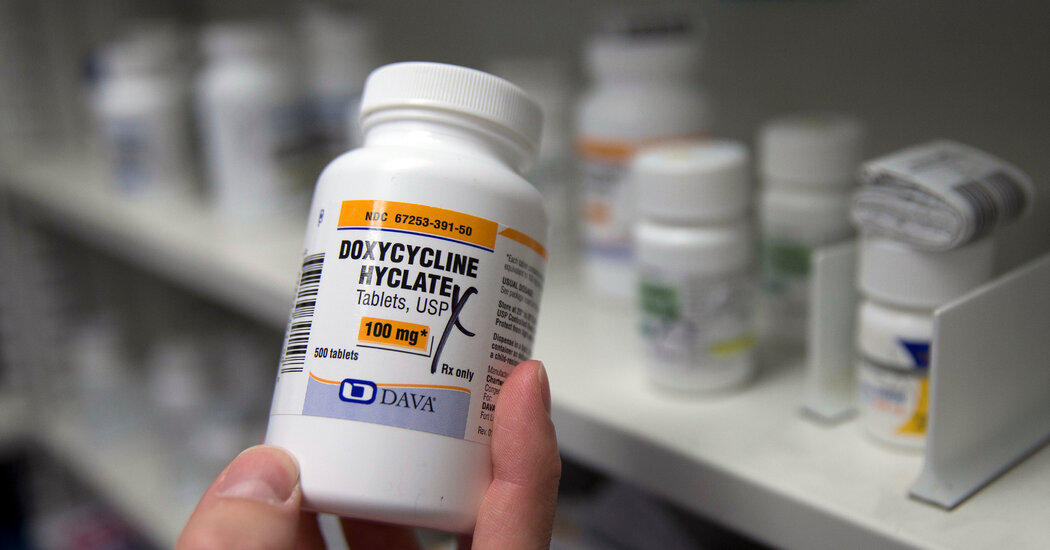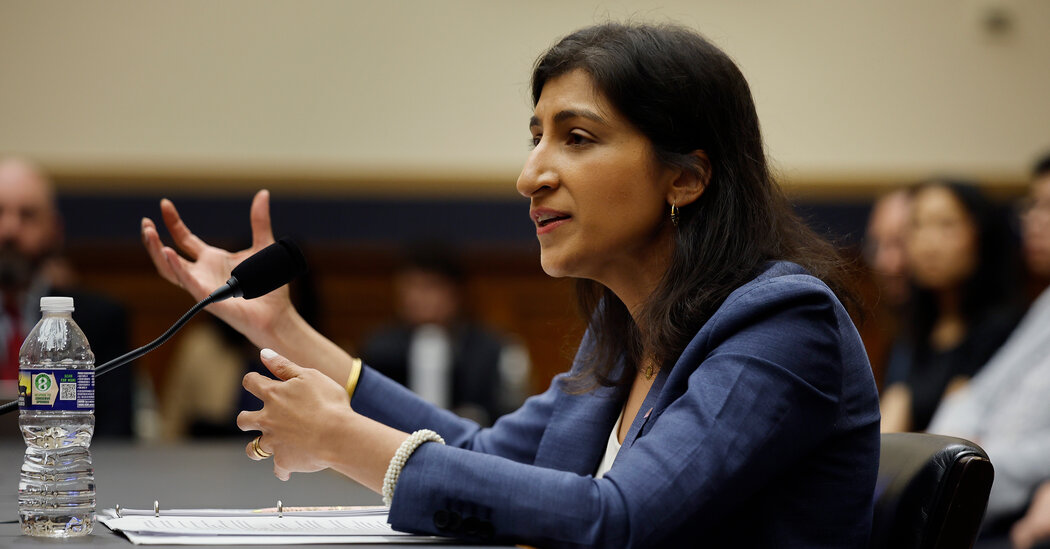A single dose of doxycycline, a widely used antibiotic, taken after sex halved the incidence of chlamydia and early syphilis among gay and bisexual men and transgender women in San Francisco, city health officials announced on Monday. The findings offered a glimmer of hope amid a rising tide of sexually transmitted infections nationwide.
The strategy is called doxy-PEP, shorthand for doxycycline post-exposure prophylaxis. In San Francisco, gay and bisexual men and transgender women who had a history of S.T.I.s or multiple sex partners were given a supply of the antibiotic and asked to take two 100-milligram pills within 72 hours of unprotected sex.
New cases of chlamydia and early syphilis — but not gonorrhea — dropped over the course of about a year. The results were presented at the Conference on Retroviruses and Opportunistic Infections in Denver.
“It’s not subtle, it is very fast and we’re seeing the beginning of it, not the end,” Dr. Hyman Scott, a medical director at the San Francisco Department of Public Health, said in an interview. “This is what we want for S.T.I. prevention.”
Strategies to stem S.T.I.s are sorely needed.
Syphilis, once nearly eliminated in the United States, has reached the highest rate of new infections recorded since 1950, the Centers for Disease Control and Prevention reported in January. Left untreated, syphilis can damage the heart and brain and cause blindness, deafness and paralysis.
Rates of chlamydia remained flat nationwide in 2022, compared with the number in 2021, but at nearly 1.7 million cases, infections were common. (Gonorrhea cases decreased in 2022, but experts cautioned that the trend might have been the result of a decrease in testing.)
“These data are simply looking at numbers of S.T.I. cases at different time points but make me feel hopeful that doxy-PEP may be able to reduce S.T.I.s at a population level,” Dr. Ina Park, an S.T.I. expert at the University of California, San Francisco, said of the new results. She was not involved with the work.
The evidence so far supports the case for doxycycline use only in gay and bisexual men and transgender women. Previous studies have shown that a single dose of doxycycline taken within 72 hours of unprotected sex substantially cuts the risk of S.T.I.s in these groups.
“The majority of S.T.I.s in the United States occur in cisgender women,” said Dr. Jonathan Mermin, director of the National Center for H.I.V., Viral Hepatitis, S.T.D. and TB Prevention at the C.D.C.
“Studies of whether doxy-PEP works in cisgender women should be implemented as quickly as possible,” he said.
In October, the C.D.C. released draft guidelines for doxy-PEP. It will issue its final recommendations in the next few months, Dr. Mermin said.
But, prompted by early clinical trial results, the San Francisco Department of Public Health — a pioneer in the fight against H.I.V. and S.T.I.s — began recommending doxy-PEP a year before the agency’s draft guidelines were published.
City officials tracked monthly rates of chlamydia, gonorrhea and early syphilis before and after the introduction of doxy-PEP in November 2022. They also compared the numbers with the rate of infections in cisgender women.
Over a 13-month period, new cases of chlamydia and early syphilis across the city dropped by 50 percent, compared with the expected numbers. Rates of gonorrhea did not change significantly.
By contrast, cases of chlamydia in cisgender women steadily increased. City health officials plan to analyze the numbers over a longer period to confirm the downward trend.
“The fact that we did not see declines in S.T.I.s in other populations not recommended for doxy, specifically cis women, strengthens the conclusion that the decline in chlamydia and early syphilis cases is related to doxy-PEP rollout,” said Madeline Sankaran, an epidemiologist at the San Francisco Department of Public Health who presented the findings.
A separate study found that S.T.I. rates dropped despite an increase in sexual partners, instances of sex without condoms and group sex among people taking doxy-PEP. More than 75 percent of those offered the pills reported taking them after sex without condoms, the researchers said.
While the results are promising, Dr. Mermin cautioned, they may have been skewed by the 2022 outbreak of mpox, previously known as monkeypox, during which high-risk groups voluntarily curtailed their sexual activity. There was also a limited effect on rates of gonorrhea, he added.
Dr. Mermin said lowering S.T.I.s nationwide would require ensuring that the approach is used in the South and in rural areas, and in Black and Latino populations that are at high risk.
“No tool, no matter how powerful, will prevent infections if it doesn’t reach the people who need it most,” he said.
There has been some concern about the emergence of antibiotic resistance with widespread use of doxycycline, but the limited data available suggest that the approach does not substantially increase resistance in people who take it, Dr. Mermin said. The C.D.C. and others are monitoring the trends, he added.
If further analysis confirms doxy-PEP’s potential, Dr. Park said, she could foresee sex party hosts offering the pills, much as clinics now offer condoms.
Perhaps the antibiotics would be in a jar with a sign saying, “Take two on your way out the door,” she said. “That’s where I see this going.”







